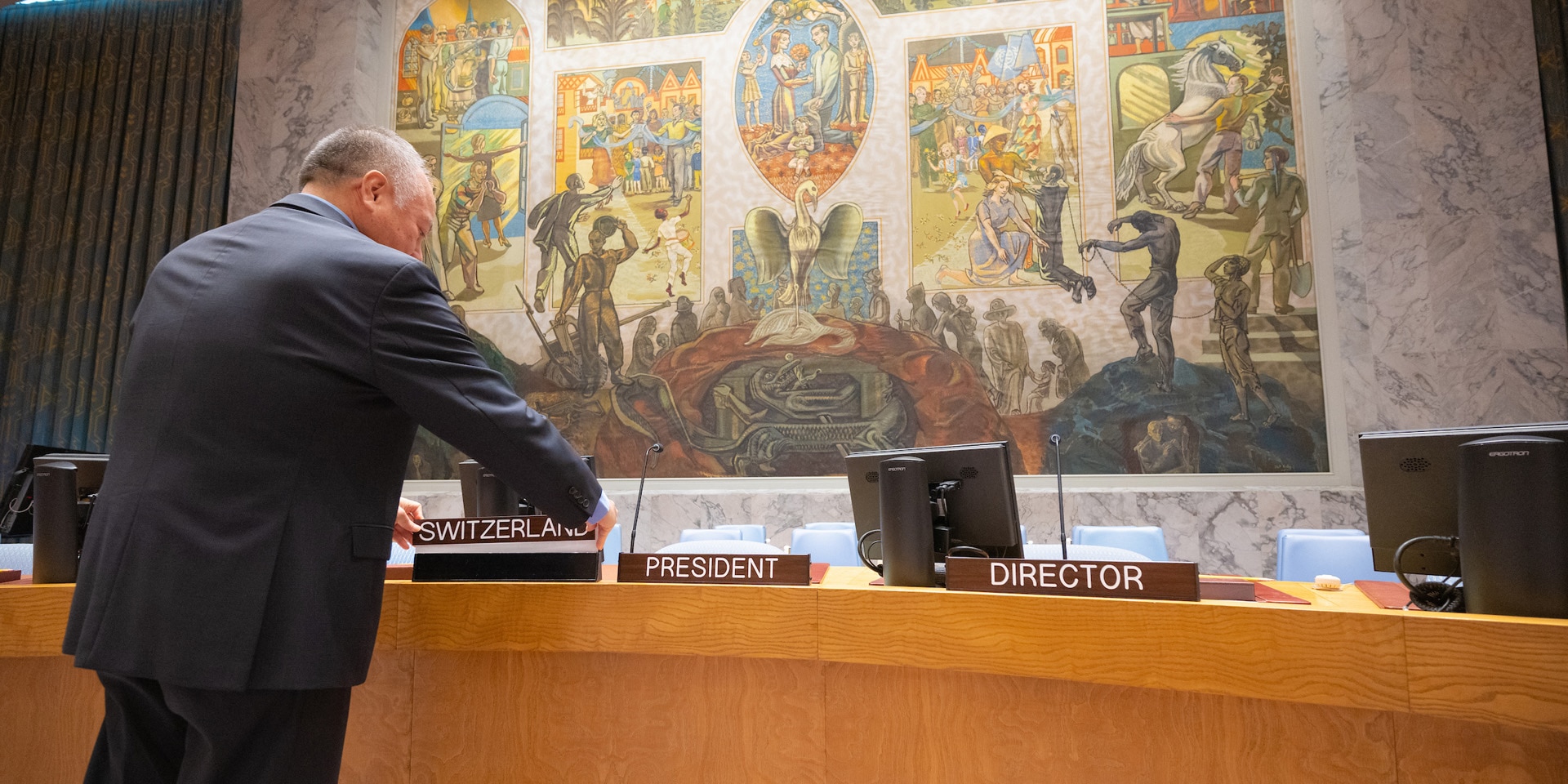The country which holds the presidency plans the Security Council's programme of work for the respective month. The basis of the programme is to a large extent predetermined, namely by the necessary extension of mandates of UN peace missions or sanctions regimes established by the Security Council. The presidency may also organise its own meetings. Switzerland's month-long presidency offers an opportunity to spotlight its thematic priorities: building sustainable peace, protecting civilians, addressing climate security, and enhancing the Security Council's effectiveness, while also providing fresh impetus to the council.
Switzerland has planned two flagship events for its month-long presidency. On 21 October, the head of the FDFA, Federal Councillor Ignazio Cassis, will chair a Security Council meeting on the impact of current and future scientific and technological developments on peace and security. The meeting will explore the opportunities and risks of these developments, and examine what actions the Security Council deems necessary to fulfil its mandate, particularly in relation to the prevention of conflicts. On 24 October, the Security Council will address the topic of 'Women, Peace and Security' during its annual open debate, which will be chaired by Ms Amherd.The focus will be on the role of women in peace processes. While women remain significantly underrepresented in peace negotiations worldwide, research shows that their inclusion substantially increases the chances of sustainable implementation of the peace agreements.
In October, the UN Security Council, under Swiss presidency, will host a visit from the Peace and Security Council of the African Union. The two councils will discuss cooperation on peacekeeping operations in the context of climate security and the role of young people in peace work.
On 14 October, Switzerland will inaugurate an exhibition entitled 'Deepfake and You' at the United Nations headquarters in New York. The exhibition was jointly designed and curated by Switzerland, EPFL, and the International Committee of the Red Cross.The manipulation of images and disinformation can have serious political, social and humanitarian consequences.This exhibition aims to raise awareness of these risks and propose potential solutions.

